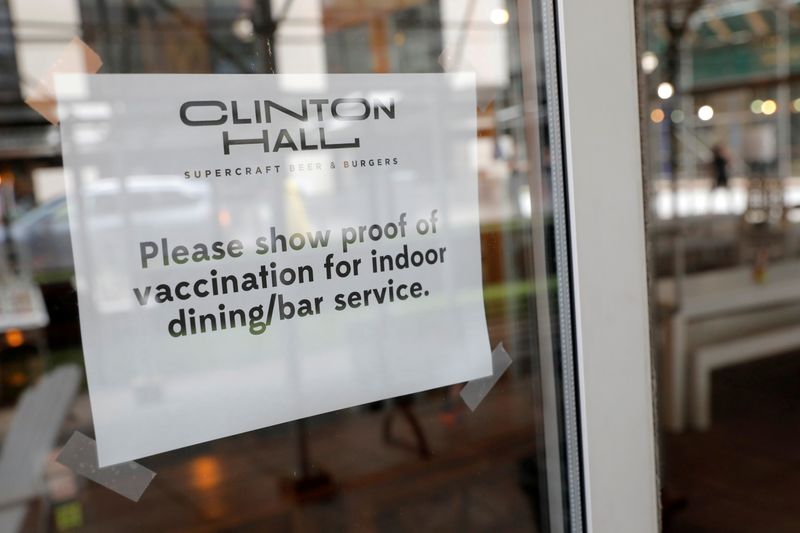(Reuters) – U.S. employers, universities and local governments are increasingly putting COVID-19 vaccine mandates in place to contain outbreaks of the disease as infection rates remain high.
Workers who fear losing their jobs for refusing the shots are turning to the courts. The following are some of the key cases.
– Employees fighting mandates and termination
Many large U.S. employers have announced vaccine mandates, including Walmart Inc, Google’s parent company Alphabet Inc and the federal government.
Legal experts have said requiring vaccines is one way an employer can meet its duty to reduce workplace hazards such as COVID-19.
The cases against government employers generally allege that mandates violate the right to bodily integrity under the 14th Amendment of the Constitution. Cases against private employers tend to focus on violations of laws that bar mistreatment based on disabilities and religious beliefs.
In the first case considering an injunction against a private employer, a federal judge in Covington, Kentucky, upheld a vaccine requirement for staff at St. Elizabeth Healthcare, which operates facilities in the Cincinnati area. The judge said employees could refuse the vaccine and quit.
Houston Methodist Hospital, which was the first large health system to impose a COVID-19 vaccine requirement on employees, won quick dismissal of a case before an injunction was considered.
Gainesville, Florida dropped its mandate covering around 2,200 city employees and contractors after a Florida judge temporarily blocked the requirement because the city did not provide evidence it served a compelling interest. It appears to be the largest mandate to have been withdrawn.
– Challenges to mandates for students and teachers
More than 500 colleges and universities have imposed vaccine requirements and many have been challenged in court, sometimes for denying student requests for a religious exemption.
In the most detailed ruling that is often cited by other courts, a federal judge said Indiana University acted reasonably to protect public health by requiring vaccines, or masking and testing. The judge said students could choose to attend a different school or postpone their education if they did not want to take a vaccine.
Federal courts in similar cases have sided with the University of Massachusetts, University of Connecticut and Creighton University in Nebraska.
A U.S. judge issued an injunction against the University of Western Michigan requirement for student athletes because it violated the students’ religious beliefs and the judge found the school could have achieved the same goals without inoculations.
Federal and state judges upheld New York City’s vaccine mandate for Department of Education employees. A U.S. appeals court briefly put the policy on hold before allowing it to go ahead.
– Lawsuits over government vaccine requirements
Some states have imposed requirements that healthcare workers to get COVID-19 vaccines while other states have banned vaccine mandates for public sector workers. Both approaches have prompted legal challenges.
New York City Mayor Bill de Blasio was sued over a vaccine requirement for customers at restaurants, theaters and gyms.
The Montana Medical Association sued to block a state law that prevents private employers in the state from requiring vaccines for employees.
In one of the first rulings, a federal judge in New Mexico on Sept. 13 upheld the state’s requirement that hospital workers and state fair attendees be vaccinated, finding the order did not violate a fundamental right.
Norwegian Cruise Line Holdings Ltd convinced a federal judge in Miami on Aug. 8 to prevent Florida officials from enforcing a state ban on “vaccine passports.” The ruling allowed the cruise line to require passengers boarding its ships in Florida to prove they had been vaccinated, without fear the company would be fined by state officials.
(Reporting by Tom Hals in Wilmington, Delaware; Editing by Noeleen Walder and Bill Berkrot)






















